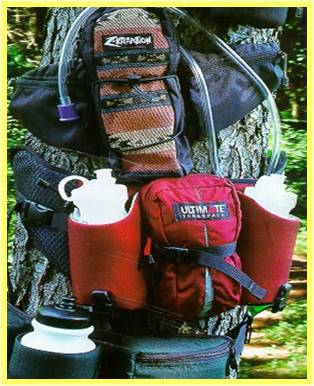Nationwide Teleconsulting • Sports Nutrition E-Programs


Chicago Marathon Series: Recheck the sweat
Recheck your sweat rate
Fine-tune your hydration and fueling plan
 With the Chicago Marathon taking place in October it is never too soon to gather some data to fine -tune your race hydration and fueling plan. You can then prepare your race nutrition plan for your remaining long runs. After 12 weeks of training, it is likely that your sweat rate is at is highest level- you have trained for several months and acclimatized to the hot weather of July, August and early September.
With the Chicago Marathon taking place in October it is never too soon to gather some data to fine -tune your race hydration and fueling plan. You can then prepare your race nutrition plan for your remaining long runs. After 12 weeks of training, it is likely that your sweat rate is at is highest level- you have trained for several months and acclimatized to the hot weather of July, August and early September.
1. Start with an easy short run about 60 minutes in length. Check your weight, preferably in the buff, before and after training. Every one pound of weight loss is 16 ounces of sweat that was lost during that run.
2. If you consume fluid during this run, add it into the equation. For example, if you are down 1.5 pounds after the run, you lost 24 ounces of sweat and that is your hourly sweat rate. However, if you consumed 16 ounces of fluid during this one hour run you add the 16 ounces to the 24 ounces and get a grand total of 40 ounces per hour for sweat losses.
3. Check you sweat rate twice or more to verify sweat losses in various temperatures. Traditionally the weather for the Chicago Marathon can vary greatly so it is good to have a sense of your sweat rate in warm and cooler weather. Just remember if it is unusually warm for race day that you did train over the Summer in similar temperatures.
4. Next check on how well you can replace your sweat losses. Most marathoners do not over-hydrate, but fail to replace or minimize sweat losses effectively. How much of a sports drink can you consume per hour in relation to you sweat rate? You still have time to increase your sports drink intake per hour if needed.
If you do have a low sweat rate this is important information that can prevent over-hydrating, or drinking too much- consuming greater amount of fluid per hour than you sweat.
5. How much carbohydrate do you obtain from the amount of sports drink that you consume per hour? The sports drink on the Chicago Marathon course is the Gatorade Endurance Drink (GED). If you can drink 24 ounces per hour, you will consume about 42 grams of carbohydrate in that hour and 600 mg of sodium.
You want to consume anywhere from 40 to 60 g of carbohydrate per hour. Even 70 g per hour is fine if this fits in with your sweat rate and gastrointestinal tolerances.
6. Where does your sweat rate and drinking rate fall?
24 ounces of GED provides 42 g carbohydrate and 600 mg sodium.
32 ounces of GED provides 56 g carbohydrate and 800 mg sodium.
40 ounces of GED provides 70 g carbohydrate and 1000 mg sodium.
So check how much you can consume per hour and how this relates to your sweat rate. Then you can determine what you intake of carbohydrate would be per hour so that you can also meet your fueling goals.